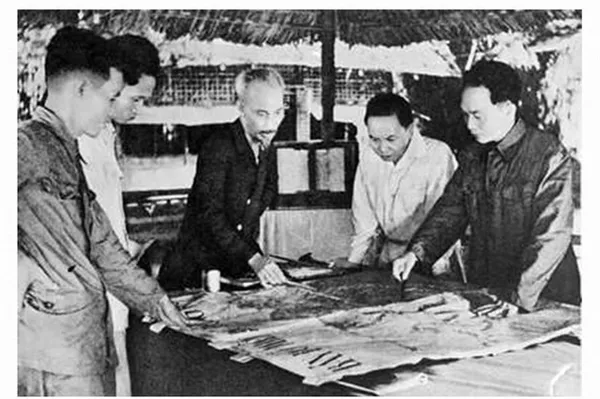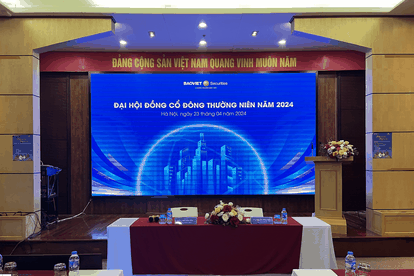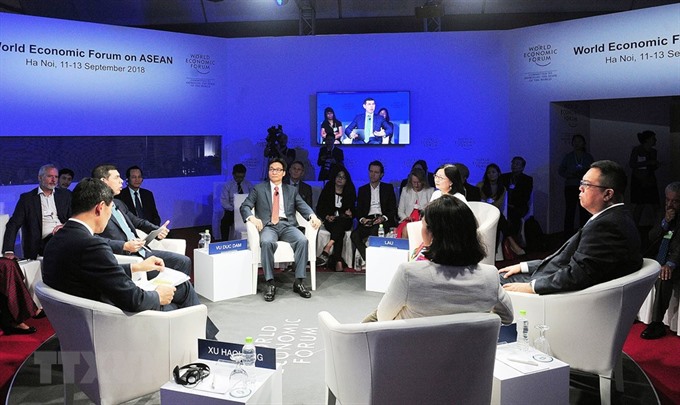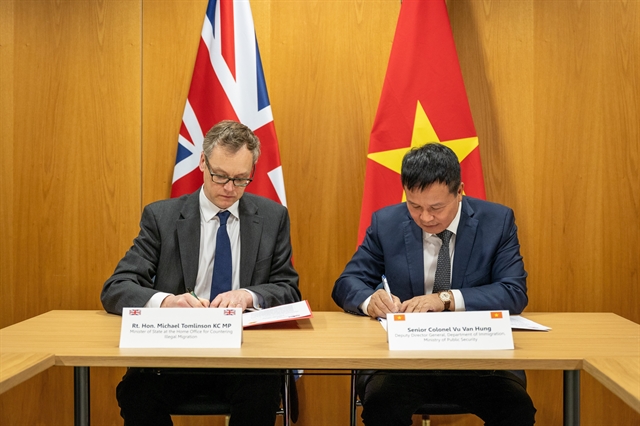 Politics & Laws
Politics & Laws

Deputy Prime Minister Vũ Đức Đam on Thursday said that as the education approach in Việt Nam has transformed to better prepare the country’s young people for the fourth industrial revolution, schools are training students to ask more questions and to think outside of the box.
 |
| Deputy Prime Minister Vũ Đức Đam speaks at a group of panelists discussing the future of jobs at the World Economic Forum on ASEAN in Hà Nội.on Thursday. — VNA/VNS Photo Nguyễn Khang |
HÀ NỘI — Deputy Prime Minister Vũ Đức Đam on Thursday said that as the education approach in Việt Nam has transformed to better prepare the country’s young people for the fourth industrial revolution, schools are training students to ask more questions and to think outside of the box.
As rapid changes bring along many new technologies, many jobs will also be lost, particularly in labour-intensive sectors that account for a major part of Việt Nam’s economy such as textile-garments, leather-shoes, construction or simple work in electronic plants.
That’s why change is needed, he said.
“The traditional education method of Việt Nam was that we teach our young people to be obedient; now we need to change it,” Đam told a group of panelists discussing the future of jobs at the World Economic Forum on ASEAN in Hà Nội.
“The country is facing challenges in how to retrain people to give them new skills required or to move them to a new sector, particularly people in the agriculture sector to the service sector,” he said, adding that 38 per cent of the Vietnamese work force is in the agriculture sector.
Đam said the country is now working on plans to match Việt Nam’s curriculum with regional and international standards and to increase the proportion of STEM (Science, Technology, Engineering and Maths) in the curriculum.
Encouraging lifelong learning was also a crucial factor to cope with challenges in employment, he said.
Ian Lee, Asia-Pacific Regional Head of Adecco Group, agreed that lifelong learning had been a fairly consistent requirement across the region in the context of the new era.
“Changes are inevitable so it’s difficult even for us to tell what types of jobs are going to be in existence in the next 10 years and what are not,” he said.
“Ten years ago, we didn’t think of a job called cybersecurity, but now it’s the hottest job of the world,” he said.
That’s why he suggested parents be open-minded.
“You’re not going to be an accountant now and still be an accountant 10 years later, so lifelong learning has become very important,” he said.
Vivian Lau, President of JA Asia-Pacific, discussed human factors.
“At the end of the day, the fourth industrial revolution is supposed to bring a better life for every citizen on earth. At the heart of the technology revolution is the human revolution, and at the heart of the human revolution is education,” she said.
She also suggested an idea.
“We could co-evolve with our youth: we could bring young people together to address the problems of the elderly to help these not-very-young people to be digitally engaged,” she said.
She also said that governments and organisations can help by providing training to their citizens and employees at different stages of life so that they can “learn and learn and relearn”.
She said, however, that while the fourth industrial revolution calls to mind sleek hard drives and intricate circuits, no one should forget its soft human cor.
“Apart from learning to have critical thinking, technology skills and soft skills, I think there needs to be a lot more humanity and humbleness in our hearts as we move forward.”
“I think we need to think about living slower as the world moves faster, so that we can move forward all together,” she said.
Speaks to media on the sidelines of the World Economic Forum on ASEAN 2018, Vic Van Vuuren, director of the Enterprise Department at the International Labour Organisation also said soft skills were going to be equally important.
The right skills in the future are one about technology or the ability to do business, while the other one is soft skills, he said.
"And the world needs a lot more soft skills … communication, management skills,” he said.
Vuuren also highlighted that there is going to be continuing up-skilling of people and life-long learning.
"What you are learning now in four years’ time is maybe redundant. You have to learn new things that you need to put into practice." — VNS



.jpg)




.jpg)
